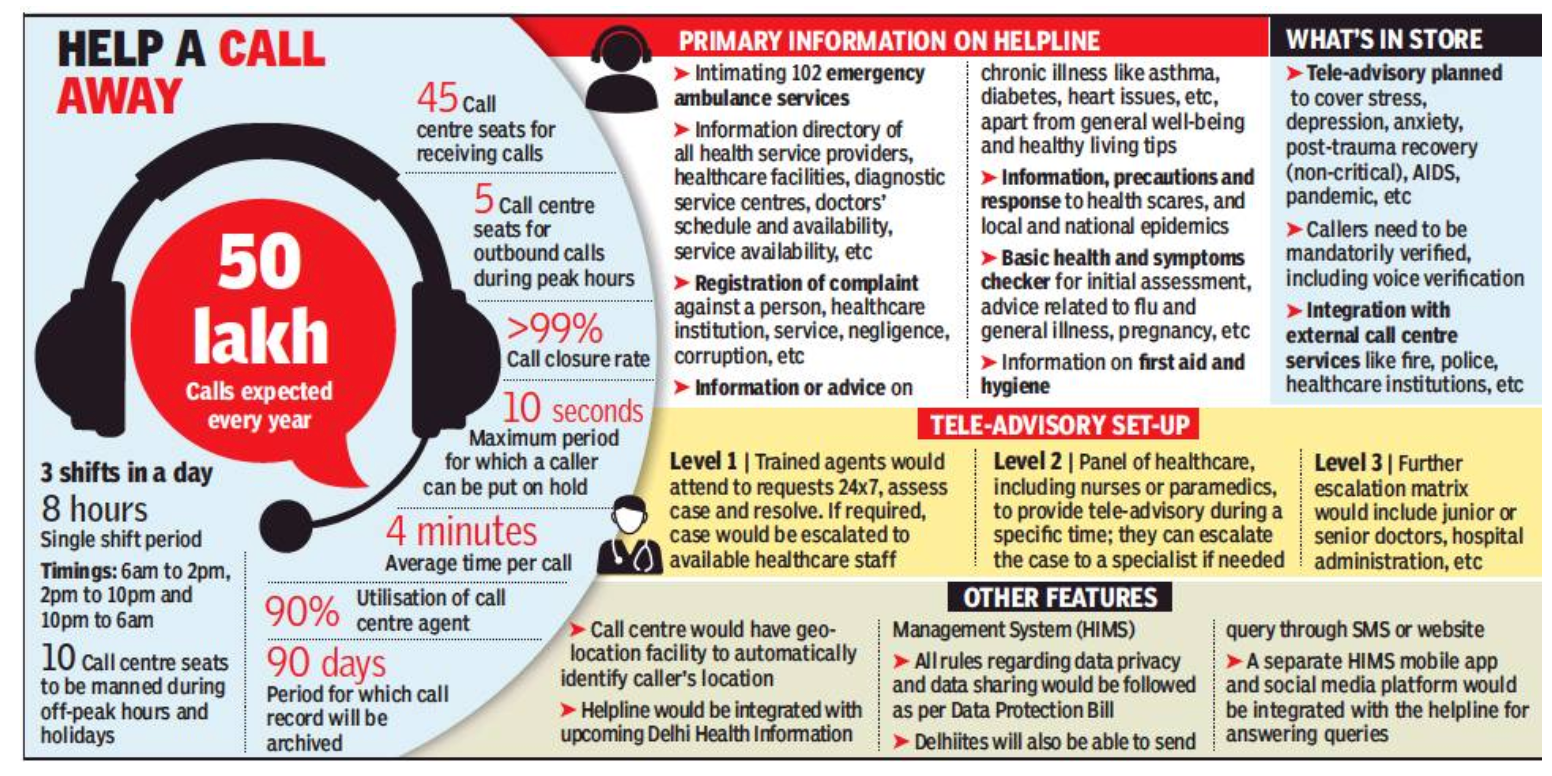Delhi government’s ambitious cloud-based Health Information Management System (HIMS), which is likely to be launched in August, will have a tele-advisory component at a later stage. As a part of the project would be a mobile app and a 24×7 centralised helpline number supported by a 50-seater call centre with trained responders to answer queries related to healthcare facilities. The department of health and family welfare would provide the tele-advisory service using this helpline.
During the implementation phase, the department would also be offering non-emergency tele-advisory services at broadly two levels. Apart from the trained call centre staff attending to general healthcare requests at the first level, the second level would have dedicated healthcare staff, on a need basis, during a specific time of the day.
The tele-advisory service would be provided by a panel of healthcare staff, primarily including nurses, paramedics, etc nominated by Delhi government. The escalation matrix would include junior and senior doctors, hospital administration, department of health and family welfare officials and even the health minister and chief minister, if the resolution of a call requires it.
If a person calls the proposed helpline for emergency cases, the staff will connect them to ambulance services of Centralised Accident & Trauma Services. In emergency situations, they would be connected to the emergency department of the nearest government hospital or healthcare facility. This would be possible thanks to the geo-location facility that would be available at the call centre.
The scope of non-emergency services of the helpline would vary and range from providing information of all health service providers, healthcare facilities, diagnostic service centres, schedule of doctors and their availability, service availability, etc, to registering complaints about people, healthcare institutions, deficiency of service, negligence, corruption, etc.
Coming to medical advice, the helpline responders would be trained to provide information or advice on chronic illnesses like asthma, diabetes, heart issues, etc, or even general well-being and healthy living tips. Keeping Covid-19 in mind, the responders would also provide information, precaution and response to health scares and other local or national epidemics.
The responders would also function as basic health and symptoms checkers, but this would be limited only to initial assessment, advice related to flu and general illness, pregnancy and related best practices for maintaining good health of mother and child, etc. They would also provide first aid information and advice related to general hygiene good practices, apart from any other general health or service-related information, suggestions, inputs, feedback, etc.
In future, the services would cover general advice on stress, depression, anxiety, post trauma recovery (non-critical), HIV/ AIDS, reproductive tract infections, including sexually transmitted infections, epidemic, pandemic, etc related precautions and good practices.
The callers would need to be mandatorily verified, which may include voice verification as implemented by certain banks. The health helpline would adhere to data privacy, data sharing and related legal provisions based on Data Protection Bill and related guidelines or as defined by Delhi government.


